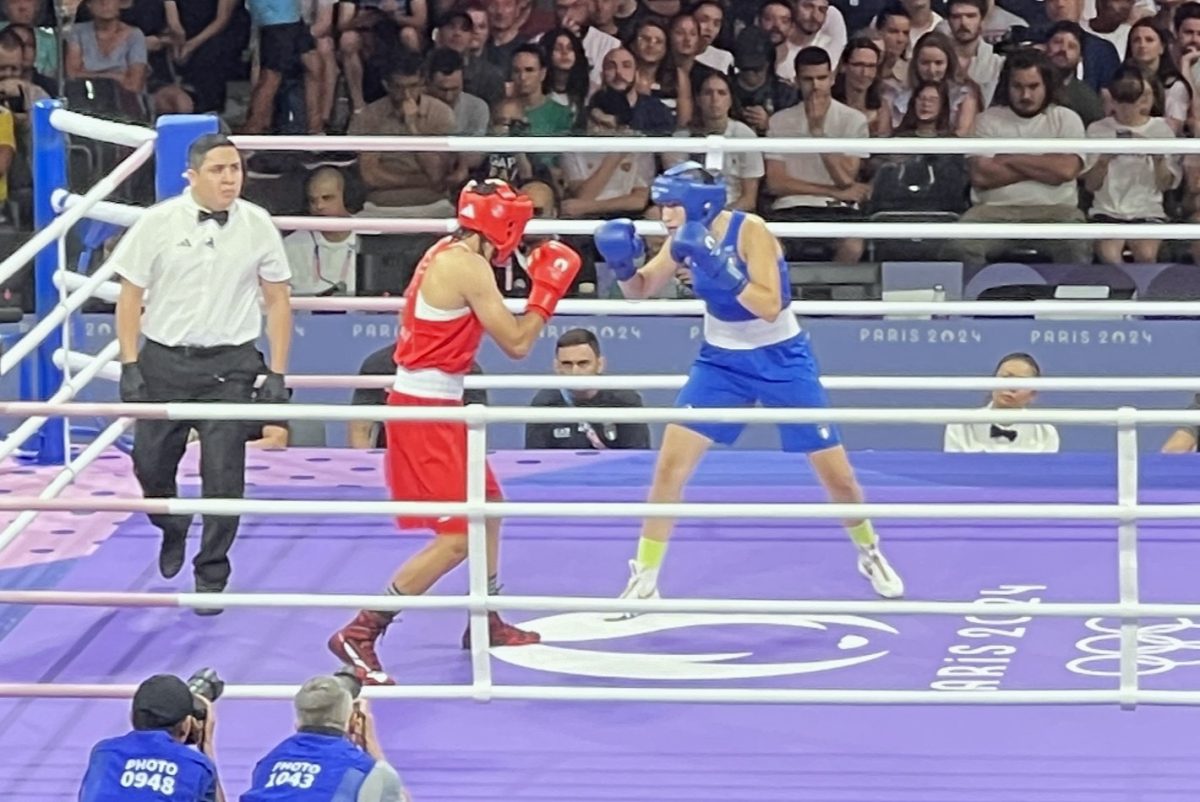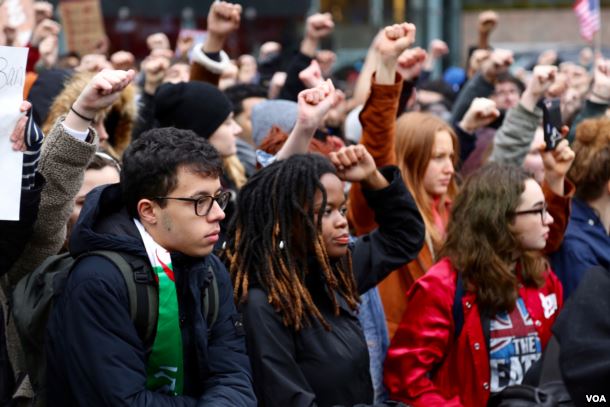Thousands of high school and University students participated in a national school walk-out as part of an ongoing protest movement against gun violence on Wednesday, March 14.
This nationally organized event was held in the commemoration of the 17 students and faculty members whose lives were taken at Marjory Stoneman Douglas High School in Parkland, Florida.
Soon after the tragedy, Parkland survivors decided to speak up and denounce gun violence. Teenagers from the high school, such as David Hogg and Emma Gonzalez, became known faces of the advocacy group and inspired fellow high school students across the United States to join them with the cause. Twitter hashtags such as #Enough and #NeverAgain sent waves throughout social media platforms, which prompted EMPOWER (the youth branch of the Women’s March) to organize a walkout demonstration.
About 2,500 walkouts were planned at high schools and universities throughout the United States. The demonstrations which all took place at 10 a.m., lasted for 17 minutes to honor the victims. Participants also took part in demanding lawmakers to pass stricter gun control laws and to fully ban assault weapons.
“I’m just proud of what these Parkland students have done and are continuing to do,” said Jay Rana, a first year Computer Science major. “They all experienced a tragedy and decided to take action to prevent it from happening again. No matter what anyone else says about them, they will continue to fight until there is change and I’m glad that they’re speaking up. These demonstrations are instrumental in the first step towards change.”
However, there were many high schools that encouraged their students to voice their political beliefs and advocate for gun reform, there were also some schools that reprimanded those who chose to walkout, citing reasons that ranged from safety concerns to class disruptions. The schools that opposed “walking out,” such as Needville High School in Needville, Texas, punished violators with suspension.
This is only possible because the United States Supreme Court ruling of Tinker v. Des Moines Independent Community School District (1969) grants students the constitutional right to “freedom of speech or expression at the schoolhouse gate,” the ruling only protects students of public schools whose protests do not disrupt the functioning of class.
The Parkland survivors organized a “March for Our Lives” protest that took place on March 24 and was centered in Washington D.C. and extended to other cities not only across the United States, but also around the world. About 800,000 participants were estimated to attend the protest of the school shootings and gun violence, advocating for reform.
“To those politicians who say change will not come, I say we will not stop until every man, every woman, every child, and every American can live without fear of gun violence,” Parkland survivor and ardent advocate David Hogg addressed the crowd at D.C. “”To that, I say, ‘No more!'”






























